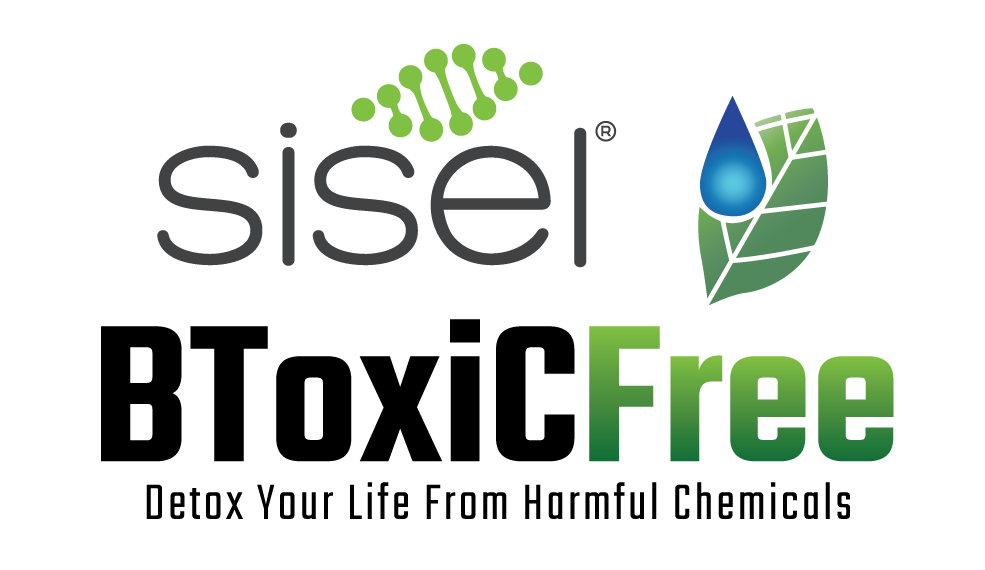Do we really need vitamins? Yes. When the body lacks essential vitamins, a lot can start to go wrong. You may start developing skin disorders, hair problems, vision problems and other health issues.
According Health Direct “Vitamins and minerals are essential parts of those chemical reactions. Without them, essential body functions couldn’t take place….”
Basically, vitamins are a group of essential micronutrients that the body needs to function properly. Since the body is not able to synthesize vitamins, they therefore must be obtained from food sources.
In this article we will cover the 11 Essential Vitamins Every Australian Needs
Let’s get started.
There are two groups of vitamins: fat-soluble vitamins and water-soluble vitamins. The difference between the two is in the way the body absorbs and stores them.
Water-soluble vitamins (Folic acid, B vitamins, and Vitamin C) are vitamins that are not stored in the body and need to be replenished frequently.
Since they are not stored in the body, the excess is eliminated through urine. The only water-soluble vitamin that can be stored in the body is Vitamin B12 and usually, it’s stored in the liver.
Fat-soluble vitamins (A, D, E, and K Vitamins) are vitamins that don’t need to be replenished every day because they are stored in the body.
Essential vitamins
Vitamin A:
Food sources: Vitamin A can be found in sweet potatoes, carrots, leafy vegetables, liver, squash, milk and fish.
Benefits:
- Keeps the skin, body tissue, teeth and bones healthy
- Helps to reduce the risk for lung cancer
- Boosts eye health
Recommended daily intake: A lot of Vitamin A in Australian diets is obtained from provitamin A, mainly b-carotene. It is recommended that both male and female adults ingest about 900 micrograms (1500 IU) daily, but not more than 4500 micrograms (7500 IU) as it can be harmful. Your physician may recommend higher doses of Vitamin A if there is a deficiency, but not exceeding the maximum requirement.
Vitamin C (Ascorbic Acid)
Food sources: Citrus fruits, strawberries, potatoes, Brussels sprouts, and liver.
Benefits:
- Promotes the health of teeth, gums, and body tissue.
- Hydrates the skin
- Boosts wound healing
Recommended daily intake: The amount of Vitamin C that a healthy adult should ingest every day is 30 milligrams for women and 40 milligrams for men. This is the recommended amount which has been found to be sufficient for preventing scurvy.
Vitamin D
Food sources: liver, fish, eggs, and fortified milk.
Benefits:
- Strengthens bones
- Maintains normal levels of calcium and phosphorous
- Encourages skin cell renewal
Recommended daily intake: There is no recommended daily intake for Vitamin D, although some doctors recommended a daily dose of 10 to 50 milligrams.
However, many doctor suggest that getting some sunlight is enough to give all the Vitamin D you need. The only time you may need to take Vitamin D supplements is during the cold season or if you are confined to bed due to illness.
Vitamin E
Food sources: vegetable oils, leafy vegetables, nuts, and a large variety of fruits.
Benefits:
- It is an antioxidant and it destroy cell damaging molecules
- Helps to reduce the risk of cancer, Alzheimer’s disease, age-related cataracts, and cardiovascular disease
Recommended daily intake: Doctors recommend a daily intake of Vitamin E to avoid muscle and nerve damage. The daily recommended intake for healthy adult males is 10mg/day and 7mg/day for healthy adult females. The maximum dosage an adult can take is 300mg/day and this is should only be taken if it is recommended by a doctor.
Vitamin K
Food sources: leafy green vegetables, liver, egg yolks, and cheese.
Benefits:
- Reduces appearance of skin wrinkles and dark spots
- Activates the necessary minerals and proteins that are important to blood clotting
- Promotes bone health
Recommended daily intake: Vitamin K is especially beneficial to older adults or people who have bone problems as it’s known to promote bone health. Low levels of Vitamin K may cause easy bruising and excessive bleeding from punctures or wounds. Doctors recommend that women above the age of 19 should ingest 36 mcg/day and men should ingest 42 mcg/day.
Thiamine (Vitamin B1)
Food sources: brown rice, soymilk, watermelons, vegetables, eggs, pork, iver, oatmeal, and potatoes.
Benefits:
- Promotes healthy skin
- Promotes the health of the brain, hair and body muscles
- Plays a part in cellular respiration ( the converting of food into usable energy)
Recommended daily intake: The thiamin requirement amount a healthy male adult needs is 1.2 mg/day and 1.1 mg/day for a healthy adult female. Higher doses may be taken in case of a thiamine deficiency.
Riboflavin (Vitamin B2)
Food sources: dairy products, green beans, bananas, eggs, milk, cheese, whole grains, and yogurt.
Benefits:
- Promotes health of the skin, brain, hair and blood.
- Plays a role in converting food into energy.
Recommended daily intake: The recommended dietary intake for Vitamin B2 is 1.3mg/day for healthy adult males and 1.1 mg/day for healthy adult females. Daily intake of Vitamin B2 supplements is only recommended in case of a Vitamin B2 deficiency, but not due to an illness.
Niacin (Vitamin B3)
Food sources: meat, fish, poultry, potatoes, whole grains and mushrooms.
Benefits:
- Promotes the health of the brain, skin, nervous system and blood cells.
- In high concentrations it can help to lower high blood pressure.
Recommended daily intake: The recommended daily dosage of Niacin is 14mg/day for adult women and 16mg/day for adult men. This is the amount doctors recommend to keep pellagra, a disease which occurs due to a niacin deficiency, at bay.
The maximum amount of niacin an adult can take is 35m/day. Higher doses should only be taken if recommended by a doctor.
Self-medicating on high doses of niacin may cause a number of unpleasant symptoms including headaches, flushing, itching, nausea and intestinal cramps.
Pantothenic Acid (Vitamin B5)
Food sources: whole grains, avocados, broccoli, mushrooms, egg yolks and tomatoes.
Benefits:
- Helps in converting food into energy.
- Synthesizes proteins, carbohydrates, fats and coenzyme-A (CoA).
Recommended daily intake: A lack of sufficient Vitamin B5 in the body is due to poor diet or the consumption of synthetic diets. Symptoms that may occur include restlessness, irritability, fatigue, nausea, cramping, diarrhea and vomiting.
To avoid these symptoms, doctors recommend that male adults take 6mg/day and female adults take 4mg/day of Vitamin B5.
Pyridoxine (Vitamin B6)
Food sources: meat, fish legumes, bananas, watermelons, soy and tofu.
Benefits:
- Helps to prevent hormonal imbalance
- Boosts the health of the skin
- Boosts the immune system
- Promotes the health of the nervous system
Recommended daily intake: A healthy diet will provide a sufficient amount of Vitamin B6. But for people with kidney disorders, and certain health problems, they may be required to take Vitamin B6 supplements.
If you are taking the supplements as part of your daily diet, the recommended daily intake for men should not exceed 2mg/day and women should have 1.5 mg/day. Higher doses should only be taken if directed by a doctor.
Essential Fatty Acids (Vitamin F)
Food sources: vegetable oils, salmon, sardines, tuna, soybean, walnuts, almonds, egg yolk, and flax seeds.
Benefits:
- Promotes wound healing, cell regeneration, health of the skin and hair
Recommended daily intake: Vitamin F is especially good for promoting healthy skin. However, like all other vitamins, there is a limitation as to how much you can ingest every day.
The daily recommended allowance for Vitamin F is 1.6 grams for men above the age of 19 and 1.1 for adult women.
Where Can I Get Supplements?
Vitamins naturally found in foods is the best choice, however if your diet is inadequate you can find supplements provide massive support.
When you are shopping for youth vitamin supplements, naturally, you would want a product that contains ingredients that will give you the best results with minimal side-effects. Preferably a product that contains ingredients that add value to your health.
Supplements that contain even the most basic vitamins are quite effective and safe, which is why I would recommend Sisel age reversing supplements (SpectraMaxx, SupraOmega Plus, Encompass 360, and TS-X) and the AGE Pill.
However for massive anti aging effects, if you can only take one supplement I would recommend Sisel’s AGE Pill
Why Sisel Supplements?
Sisel anti-aging supplements contain many essential vitamins that help reverse and prevent the visible signs of aging, such as wrinkles, pigmentation and dark spots.
SpectraMaxx for example is one of Sisel’s star products, which offers a unique blend of vitamins, minerals and other nutrients that gives the skin a smooth and youthful appearance. Among the ingredients contained in this product include Vitamin A, Vitamin C, Vitamin B1, Vitamin B2, and Niacin, all of which are essential vitamins that helps us maintain good health.
Another Sisel product that is in same category as SpectraMaxx is Encompass 360. This powerful multivitamin supplement contains 13 of the most essential vitamins that are responsible for cell regeneration, cell repair, wound healing, and a number of other functions. It also contains a number of essential minerals and nutrients that help diminish the visible signs of aging.
What are the alternatives?
Neways was a multi-level marketing company founded Tom Mower Senior in the early 90s. Neways manufactured and sold its own personal care products and nutritional supplements. The original creator of their products, founded Sisel in 2006 with his Son Tom Mower Jr. So original Neways product lovers and Sisel product lovers have in common their passion for cutting edge products produced by the two times genius award winner Tom Mower sr. Sisel offer an excellent range of scientifically advanced products which provides a perfect alternative for the customers seeking Neways products.
Elysium Health is another company that sells anti-aging supplements. Since its inception, the company has built a good reputation for selling safe supplements specifically designed to slow down the aging process.
To find Vitamin pills Australia, do a google search. You will discover lower priced supermarket brands. It my opinion, typically high quality supplements are not found in your supermarket. Having said that the most popular with Australians are mostly found on the shelf. You can do you own research for vitamin reviews online.
Last Updated on March 27, 2023 by Katie Sisel Distributor

